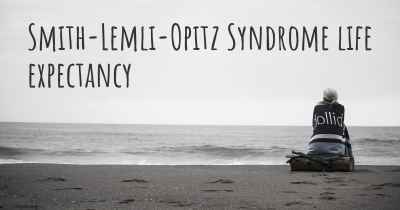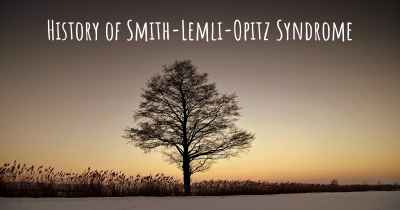Is Smith-Lemli-Opitz Syndrome hereditary?
Here you can see if Smith-Lemli-Opitz Syndrome can be hereditary. Do you have any genetic components? Does any member of your family have Smith-Lemli-Opitz Syndrome or may be more predisposed to developing the condition?

Smith-Lemli-Opitz Syndrome (SLOS) is a genetic disorder caused by mutations in the DHCR7 gene. It is inherited in an autosomal recessive manner, meaning that both parents must carry a mutated gene for a child to be affected. Individuals with one mutated gene are carriers and usually do not show symptoms. Genetic counseling is recommended for families with a history of SLOS to understand the risk of passing on the condition.
Smith-Lemli-Opitz Syndrome (SLOS) is a rare genetic disorder that affects multiple systems in the body. It is caused by mutations in the DHCR7 gene, which is responsible for producing an enzyme called 7-dehydrocholesterol reductase. This enzyme plays a crucial role in the synthesis of cholesterol, a vital component of cell membranes and a precursor for various hormones and molecules in the body.
SLOS follows an autosomal recessive inheritance pattern, which means that both parents must carry a copy of the mutated gene in order for their child to be affected. When both parents are carriers, there is a 25% chance with each pregnancy that the child will inherit two copies of the mutated gene and develop SLOS, a 50% chance that the child will be a carrier like the parents, and a 25% chance that the child will not inherit the mutated gene at all.
It is important to note that being a carrier of the DHCR7 gene mutation does not typically cause any symptoms or health problems. Carriers only have one copy of the mutated gene and therefore have enough functional 7-dehydrocholesterol reductase enzyme to produce adequate cholesterol. However, if both parents are carriers, they have a 25% chance with each pregnancy of having a child with SLOS.
Genetic testing can be performed to determine if an individual is a carrier of the DHCR7 gene mutation. This can be particularly useful for couples who are planning to have children and want to assess their risk of having a child with SLOS. If both parents are carriers, they may choose to undergo additional testing during pregnancy to confirm if the fetus has inherited the mutated gene.
Individuals with SLOS have a wide range of symptoms and severity, as the disorder can affect various systems in the body. Some common features of SLOS include developmental delays, intellectual disability, distinctive facial features, growth abnormalities, and organ malformations. Additionally, individuals with SLOS may have difficulties with feeding, breathing, and have an increased risk of infections.
While there is currently no cure for SLOS, management of the disorder focuses on addressing the specific symptoms and providing supportive care. This may involve a multidisciplinary approach with various healthcare professionals, including geneticists, pediatricians, neurologists, and occupational therapists, among others.
Early intervention is crucial in optimizing the outcomes for individuals with SLOS. This may include therapies such as physical therapy, speech therapy, and occupational therapy to address developmental delays and improve functional abilities. Additionally, individuals with SLOS may require specialized medical care to manage specific health issues related to the disorder.
In conclusion, Smith-Lemli-Opitz Syndrome is a rare genetic disorder that follows an autosomal recessive inheritance pattern. It is caused by mutations in the DHCR7 gene and can result in a wide range of symptoms and severity. Genetic testing can help identify carriers of the mutated gene, and early intervention and supportive care are essential in managing the disorder. If you suspect that you or your partner may be carriers of the DHCR7 gene mutation, it is recommended to consult with a healthcare professional or genetic counselor for further guidance.
Posted Sep 30, 2017 by Melissa 100
Posted Nov 23, 2017 by Ruth 750








